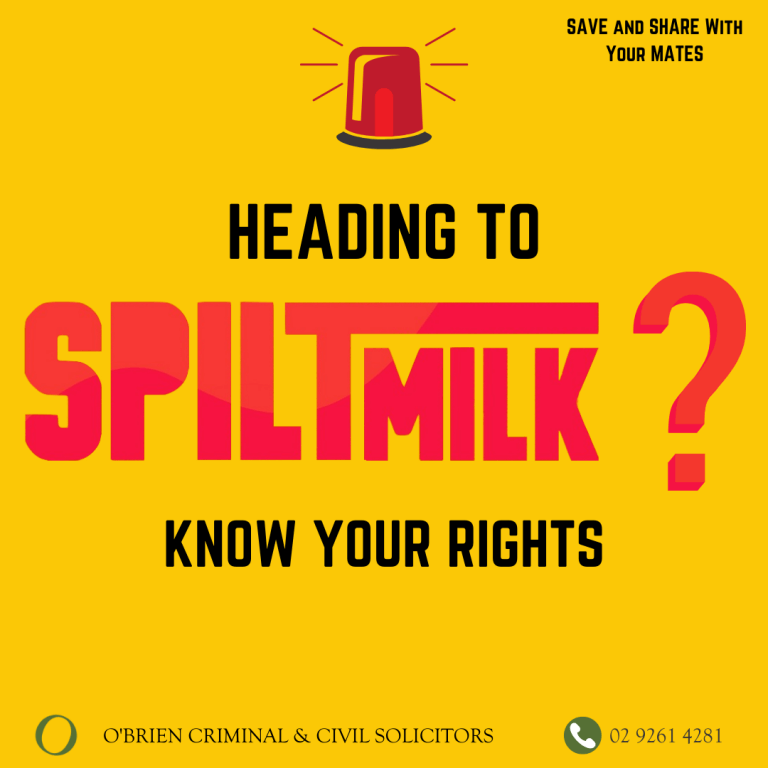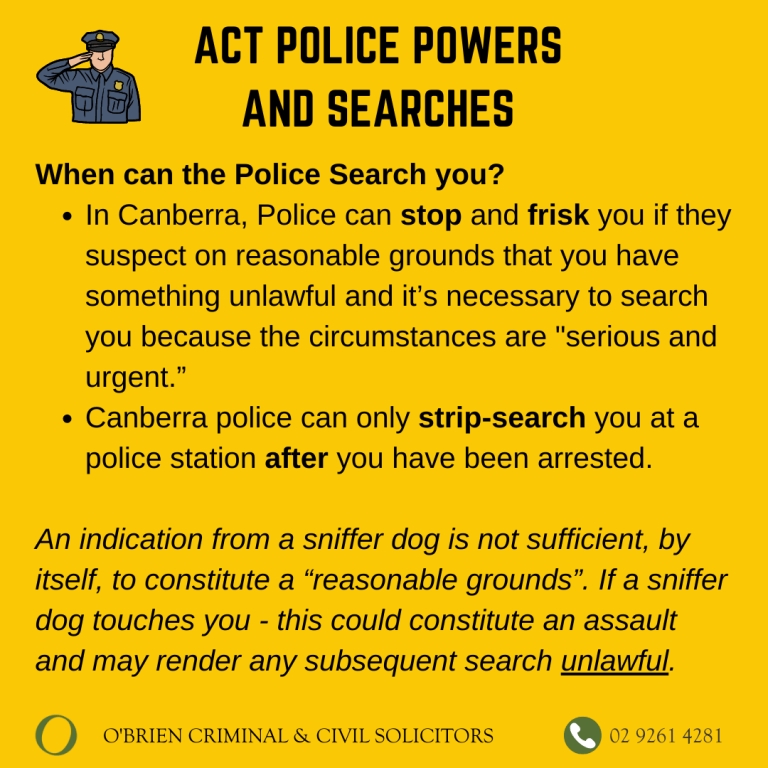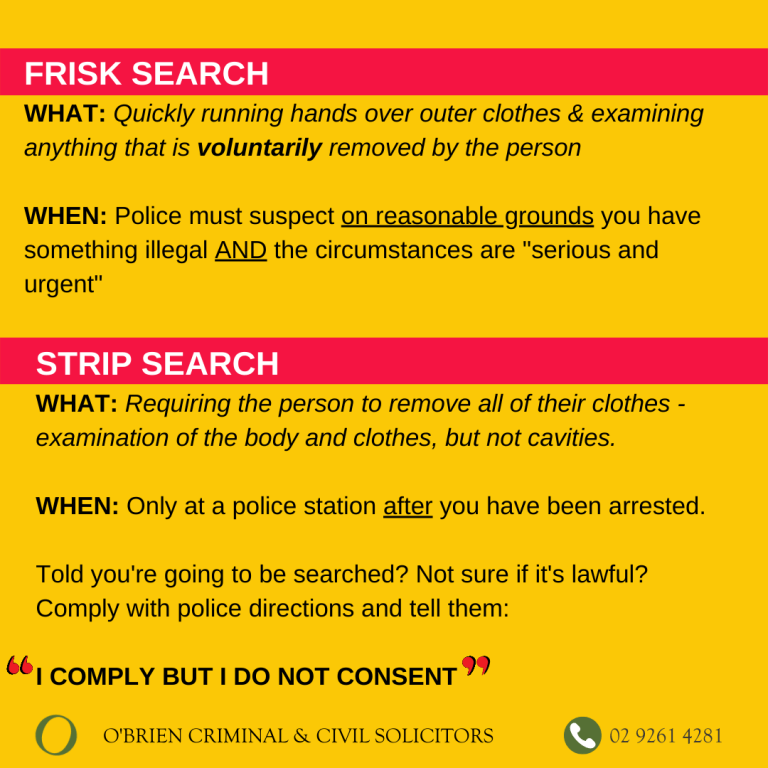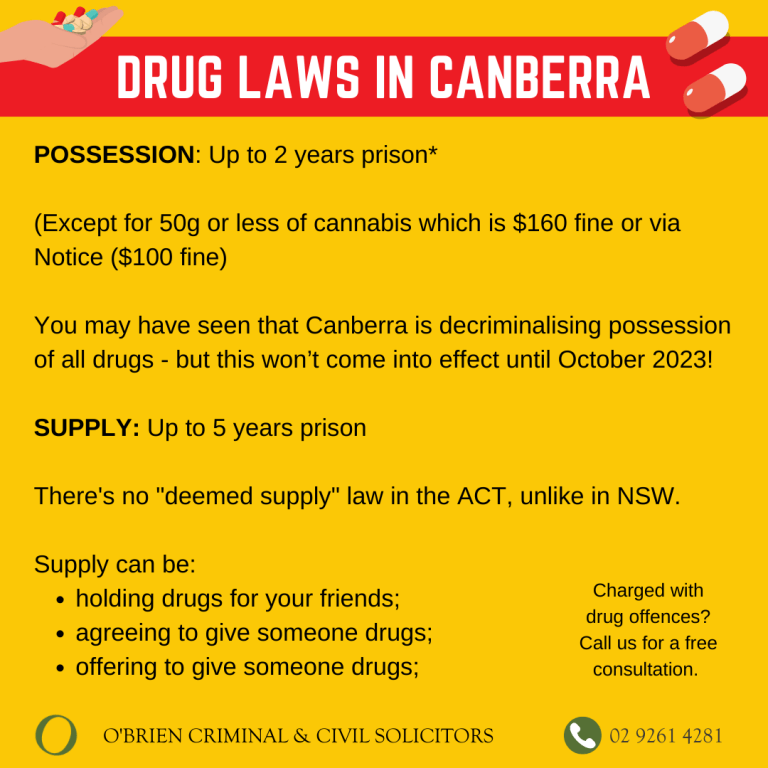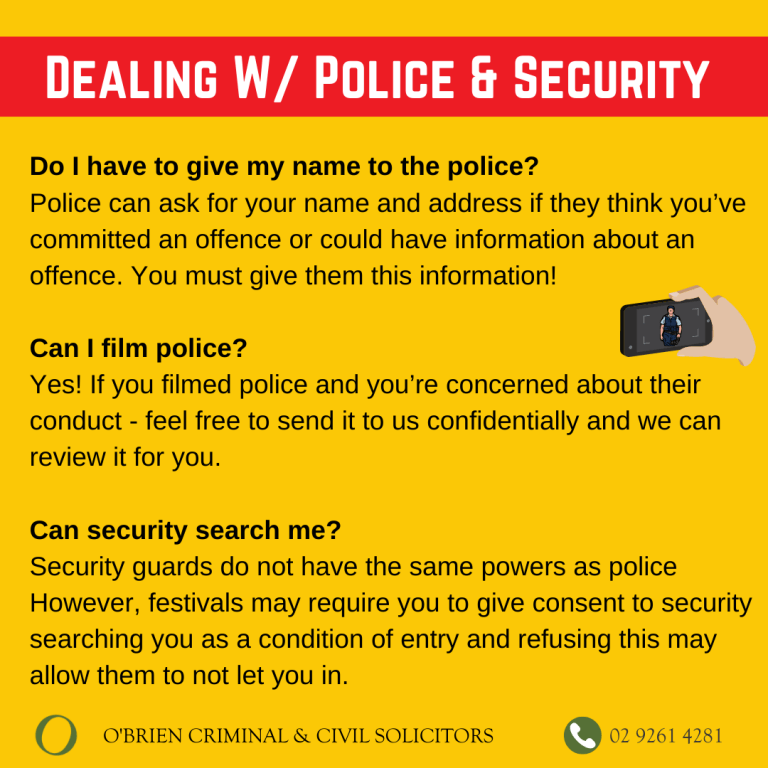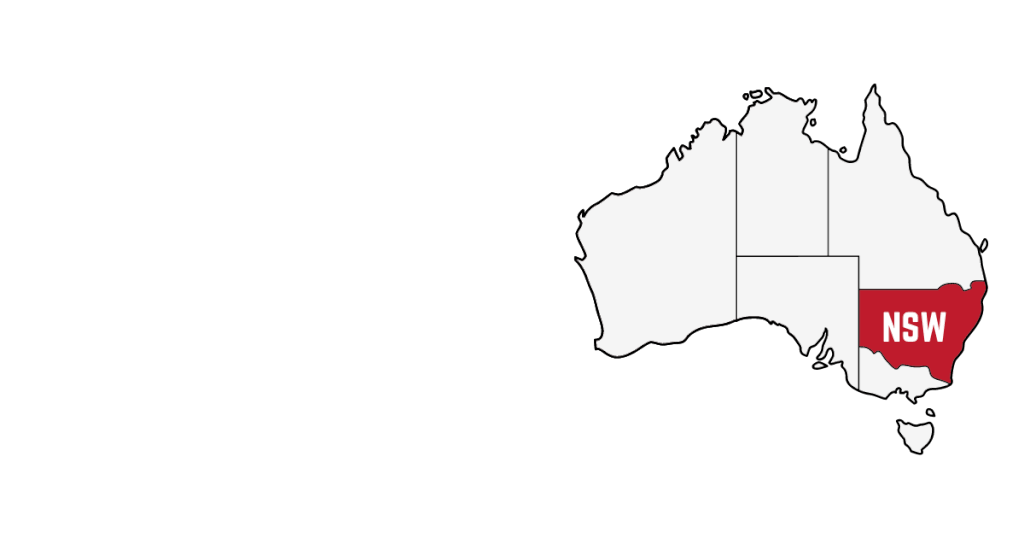
NSW Police Search Powers at NSW Festivals: Know Your Rights
Jump to:
If you are in another state or plan to visit another state, please visit other pages. Take a look at our state specific pages.
NSW POLICE POWERS AND SEARCHES
An indication from a NSW Police sniffer dog is not sufficient, by itself, to constitute a “reasonable grounds”. If a sniffer dog touches you – this could constitute an assault and may render any subsequent search unlawful.
If police tell you that they’re going to search you? Not sure if it’s lawful? Comply with police directions and tell them:
“I COMPLY BUT I DO NOT CONSENT”
POWER TO SEARCH PERSONS (GENERAL)
WHAT
WHEN
WHAT
To conduct the search, and under section 21, a police officer may:
- Run his/her hands over the person’s clothing
- Require the person to remove some of his/her clothing (coat, jacket or similar, gloves, shoes, socks and hat).
- Examine anything in the possession of the person
- Pass an electronic metal detection device over or in close proximity to the person’s outer clothing
- Carry out other actions as authorised by the act.
WHEN
Pursuant to section 21 of the act, the police can carry out searches of persons without a warrant if the police officer suspects on reasonable grounds that the person has in their possession or under their control:
- Anything stolen or unlawfully obtained.
- Anything for use or intended for use in connection with a serious offence,
- A dangerous article that is being or was used in or in connection with the commission of a relevant offence,
- A prohibited plant or a prohibited drug.
STRIP SEARCHES
WHAT
WHEN
HOW
WHAT
A strip search of a person or of articles in the possession of a person that may include:
a) requiring the person to remove all of his or her clothes, and
b) an examination of the person’s body (but not of the person’s body cavities) and of those clothes.
WHEN
Under section 31 of LEPRA, a police officer may carry out the strip search if there is a suspicion, on reasonable grounds, that the search is necessary, and that the situation is serious and urgent enough for the strip search to take place.
An indication from a sniffer dog is not sufficient, by itself, to constitute “reasonable grounds”.
HOW
The strip search must be conducted by a police officer of the same sex as the person searched. It must not take place in the presence or view of a person who is of the opposite sex. It must not take place in front of unnecessary people and must not search the genital area.
CAN POLICE SEARCH YOUR MOBILE PHONE?
If you have locked the phone with a passcode, then police cannot look through it unless they have a warrant (see the section below!).
However, this is a tricky area. While we’ve had them for ages, smartphones are still pretty new in terms of legislating around them. Smartphones hold an almost limitless amount of information. Searching one is substantially different from a search of your backpack or wallet.
Section 30 of LEPRA allows an officer to examine anything in the possession of someone that the law permits them to search. For example, they can look through your bag, wallet or your phone. There isn’t anything explicit in the legislation which says police can not look through your phone at things not related to the grounds for the search.
However, there is this presumption that there needs to be some sort of link between what they have a legal entitlement to access in your phone and the grounds for the original search. Ultimately this really needs clarification by the NSW Government, Police or the Courts.
Police need a warrant in order to force you to disclose your password, PIN or encryption keys to enable a smartphone.
However, it’s unclear whether an officer holding your phone up to your face to unlock it biometrically would satisfy this requirement.
Section 3LA of the Crimes Act 1914 (Cth) sets out that an officer needs to apply to a magistrate for a order requiring an individual provide them with access to their electronic device if there is suspicion of it holding the evidence of a crime.
In conclusion, if an officer has this order, then you could suffer severe penalties by not complying with it.
DRUG LAWS IN NSW
What sort of substances (drugs) is it prohibited to possess?
- Marijuana (cannabis, hashish)
- LSD
- ecstasy (XTC, E, MDMA)
- speed
- ice (methamphetamine)
- cocaine
- heroin (narcotics)
See the full list of prohibited drugs under Schedule 1 of the Drug Misuse and Trafficking Act 1985.
Common Drug Offences
- Possession
- Use
- Making
- Importing
- Selling or supplying
The law: s 10 of Drug Misuse and Trafficking Act 1985
Penalty: Up to 2 years prison or fine of $2200, or both.
Prosecution has to prove: that beyond reasonable doubt, the accused had ‘custody’ or ‘control’ of the drug
Supply can be:
- holding drugs for your friends;
- agreeing to give someone drugs;
- offering to give someone drugs;
The law: s25 of Drug Misuse and Trafficking Act 1985
Penalty: Penalty depends on type and quantity of drug: Less than indictable quantity: max 2 years prison.
Prosecution has to prove: Supplying or knowingly taking part in the supply of prohibited drugs
If you are found with a “trafficable amount” – you can be charged with supply even if there is no evidence that suggests otherwise
The law:
- Section 29 of the Drug Misuse and Trafficking Act 1985 (NSW) provides that those in possession of a “trafficable quantity” of a drug are automatically deemed to possess that drug for the purposes of supply.
- threshold for the large commercial quantity of methylamphetamine was halved (from 1 kilogram to 500 grams) by the Drug Misuse and Trafficking Amendment (Methylamphetamine) Regulation 2015
Penalty:
- max penalty for the offence of supplying prohibited drugs (other than cannabis) is 2,000 penalty units ($220,000) or imprisonment for a term of 15 years, or both
Drug Quantities in NSW
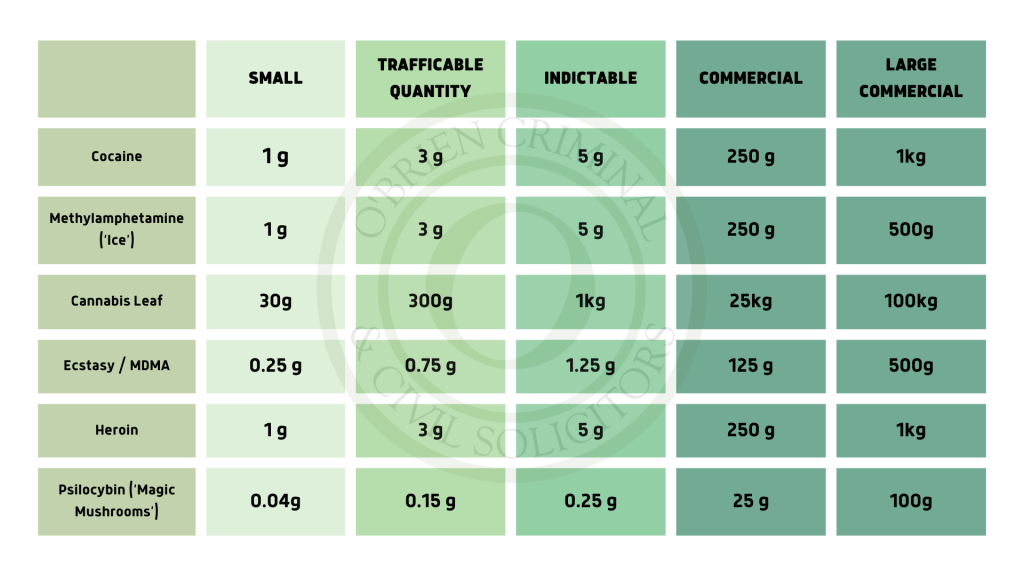
Dealing WITH Police & Security
Police can ask for your name and address if they think you committed an offence or could have information about an offence. You must give them this information!
Yes! If you film police and have concerns about their conduct then feel free to send it to us confidentially and we can review it for you.
Security guards do not have the same powers as police.
However, festivals may require you to give consent to security searching you as a condition of entry and refusing this may allow them to not let you in.
Some case studies where we have represented clients who have been charged at music festivals:
Illegal Strip Searches take place at all-ages music festival. An erroneous drug dog indication means that a youth had to strip naked in front of police.
Read the full unlawful strip search of an underage attendee at all-ages music festival case here.
Hunter Valley music festival patron charged with cocaine possession. A Police drug sniffing dog detected prohibited drugs on our client.
Cocaine possession at Music Festival.
SM was attending the “Listen Out” music festival in Randwick. After a drug sniffer dog indicated drugs on SM at the entrance, SM admitted he was in possession of prohibited drugs secreted in his underwear. SM produced two clear plastic bags containing nine capsules of MDMA. We successfully represented SM, who received a fine for the possession charge and whose supply charge was withdrawn.
Read the Successful outcome for client charged with possession and supply of drugs case study here.
Police charged CN with possession of two prohibited drugs at the Lost Paradise Festival. We represented CN who entered a plea of guilty for the two matters. With a successful outcome, CN was sentenced to a Community Release Order without conviction for a period of six months.
Police charged SS with possession of a prohibited drug at a music festival. We represented SS who entered a plea of guilty for possession of a drug. SS received the best possible outcome of a 12-month conditional release order, without conviction, to be of good behaviour.
Read the No conviction recorded for client charged with drug possession at music festival case study here.
A young client was found with a prohibited drug at a music festival. He pleaded guilty to possessing a prohibited drug. Our drug specialist lawyers assisted AW in the preparation of his sentencing case including gathering character references. The outcome was a no conviction recorded on the condition that AW enter into a good behaviour bond.
Read the No conviction recorded for drug possession at music festival case study here.
CSH was found with a small quantity of MDMA whilst attending a music festival. He pleaded guilty to the charge of possession a prohibited drug. We assisted CSH with his sentencing hearing where we made submissions that it was only a small quantity, his early admission and guilty plea. No conviction was recorded on the condition that CSH complete a good behaviour bond.
Read the case study here.
We can provide you with advice on your legal options including your legal rights, possible defences and penalties.
Your first call with us is free









